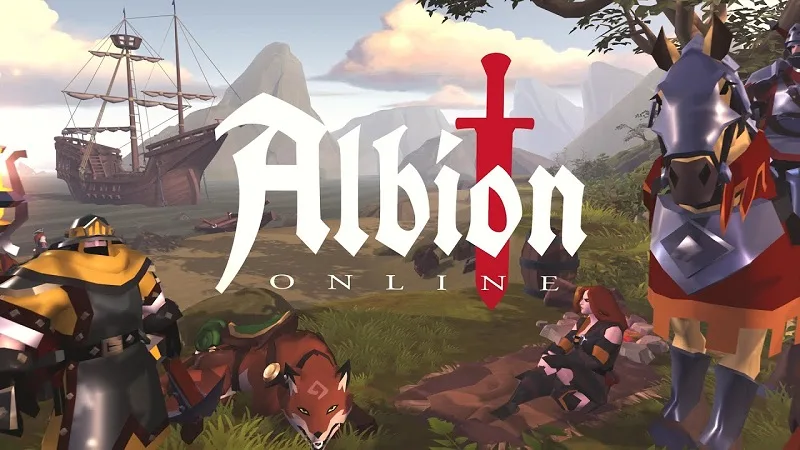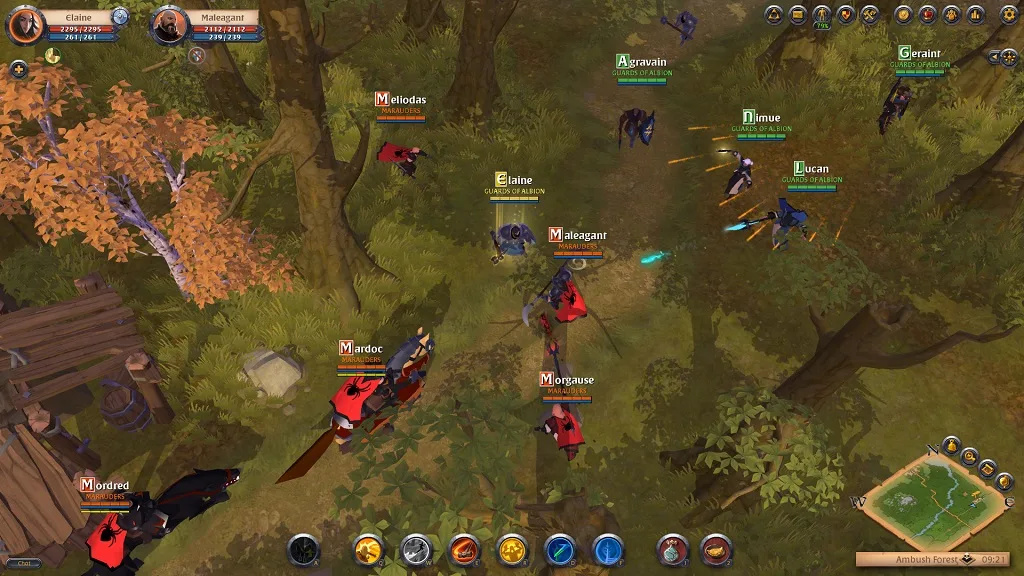Albion Online Game Review

Albion Online is a sandbox MMORPG developed by Sandbox Interactive, a Berlin-based game studio. Released in July 2017, the game invites players into a vast, open world where they can explore, craft, and engage in battles. Unlike many traditional MMORPGs, Albion Online emphasizes a player-driven economy, open-world PvP, and a classless system that allows for greater flexibility in character development. The game operates on a free-to-play model with optional premium subscriptions, making it accessible to a broad audience.
Set in a medieval fantasy world, Albion Online stands out for its unique isometric perspective, which provides a refreshing visual experience in the MMORPG landscape. The game world is divided into different regions, each with its own level of risk and reward, encouraging players to venture into more dangerous territories for better resources and opportunities. Since its launch, Albion Online has received several updates and expansions, continually adding new content and enhancing gameplay.
Game Plot and Game Mechanics
While Albion Online does not follow a linear storyline, it offers a rich background and lore that players can explore at their own pace. The primary narrative centers around the colonization of Albion, a mystical land filled with untapped resources and ancient secrets. Players assume the role of adventurers seeking fortune and glory, participating in guilds, building their own settlements, and defending their territory from other players or the various hostile creatures that inhabit the world.
Albion Online’s gameplay mechanics are a significant draw for its player base. The classless system allows players to customize their characters based on the equipment they choose, making each player’s experience unique. Crafting and gathering play a crucial role in the economy, as nearly every item in the game is player-made. The game features a robust PvP system, where players can engage in small-scale skirmishes or large-scale battles to control territories, adding a strategic layer to the gameplay. The full-loot PvP system means that players must weigh the risks and rewards of combat, as dying in battle can result in losing all carried items.
What Makes Albion Online Stand Out from its Competitors?
One of the standout features of Albion Online is its player-driven economy, which is almost entirely dependent on player crafting and resource gathering. This economic model not only fosters a strong sense of community but also ensures that player actions directly impact the game’s world and market. Such a system encourages collaboration, trade, and strategic resource management among players.
Another distinctive aspect of Albion Online is its cross-platform capability. The game is available on Windows, macOS, Linux, iOS, and Android, allowing players to seamlessly switch between devices without losing progress. This flexibility makes it accessible to a wider audience, enabling players to enjoy the game wherever they are.
Additionally, Albion Online’s emphasis on guilds and player interaction sets it apart. The game offers a rich array of guild activities, including territory wars, guild-vs-guild battles, and collaborative events. This focus on cooperative gameplay helps build a vibrant community, making social interaction a core part of the game experience.
Game Requirements
Albion Online is designed to be accessible on a variety of hardware, making it playable on both high-end and low-end systems. For PC players, the minimum system requirements include a Windows 7 operating system, an Intel or AMD CPU with SSE2 support, and a DirectX 10 compatible GPU. The game requires a minimum of 4 GB of RAM and 8 GB of free disk space. Mac users will need at least macOS X 10.7 or higher, while Linux users should ensure compatibility with Ubuntu 14.04 or later.
For mobile gamers, Albion Online is available on iOS devices running iOS 14.3 or higher and on Android devices with at least 2 GB of RAM and a Snapdragon 660 / Exynos 8890 or better processor. This wide range of compatibility makes Albion Online a versatile option for players who want to experience an MMORPG on the go.
The game’s relatively modest system requirements are complemented by its scalable graphics settings, allowing players to adjust the visual quality to suit their hardware capabilities. This scalability ensures that the game runs smoothly across different devices, providing a consistent experience regardless of the platform.

How Was the Game Received by Players?
Since its release, Albion Online has garnered a dedicated player base, praised for its deep gameplay mechanics and community-driven approach. Players appreciate the freedom to shape their destinies in the sandbox world, whether it be through crafting, trading, or engaging in PvP combat. The game’s commitment to a fair and balanced play environment, with no pay-to-win elements, has also contributed to its positive reception.
Critics and players alike have lauded the game for its immersive world and the strategic depth offered by its guild system. However, like any game, Albion Online has faced its share of criticisms. Some players have pointed out the grindy nature of the gameplay, particularly in resource gathering and leveling up. Despite these critiques, the game’s developers have shown a willingness to listen to player feedback and make adjustments, continually improving the overall experience.
Overall, Albion Online has succeeded in carving out a niche in the MMORPG market, offering a unique blend of freedom, challenge, and community interaction. Its ongoing updates and expansions indicate a bright future for the game, as it continues to attract both new and returning players to its evolving world.
